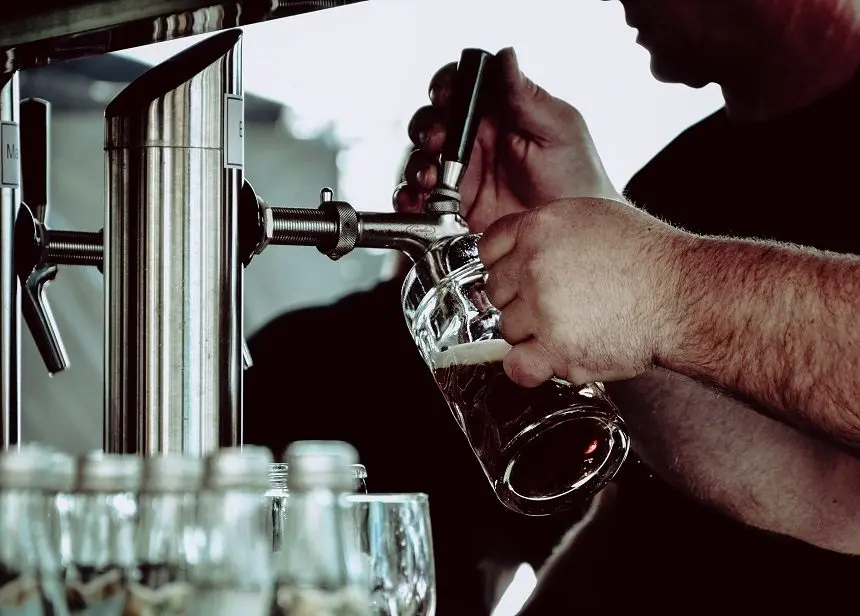Russian table etiquette provides for many rules that people adhere to throughout their lives. Traditions associated with the use of alcohol exist in all countries, but Russia occupies one of the first places in the world in terms of the number of “alcoholic” superstitions. The abundance of signs is caused by objective reasons – the Slavic peoples were kind to the meal and strictly followed the rituals accepted everywhere. Next, let’s talk about the origin of the two signs that have survived to our time: do not pour through the hand and on weight.
Why can’t pour by hand
It is believed that the tradition of not pouring by hand originates in the early Middle Ages. Poisons were among the most popular means of eliminating enemies not only in Europe, but also in Ancient Russia. The annals preserved many stories about the poisoning of representatives of the Russian nobility by “dissolvable mortals.” An unknown author of ancient chronicles described in detail the death of Prince Rostislav Vladimirovich, who died in 1066 during a feast. Poison in a bowl of wine to the ruler of Rostov and Tmutarakan (Taman) was thrown by a Byzantine guest, who enjoyed the favor of the prince.

Later, at the courts of noble people, “tasting” appeared, who tasted food and drinks immediately before serving. It was easiest for enemies and political rivals to pour a deadly potion during a meal, so it became customary to pour intoxicating drinks in front of the feasters. When the cupbearer poured through his hand, he had the opportunity to cover the cup and quietly pour in the poison. So, in the case of Prince Rostislav, the Byzantine placed poison under his own nail and imperceptibly dipped his finger into wine.
The custom of pouring drinks in front of the guests was entrenched in table traditions, which were very strong in Russia. The rules of conduct were carefully observed by both the hosts and the guests. All participants in the meal closely followed the observance of etiquette, since any violation was considered a bad omen. Filling glasses through the hand was tantamount to wishing those present misfortunes, illness and even death. Superstition has survived to this day, and the list of unpleasant consequences of a mistake has grown significantly.
It is generally accepted that pouring through the hand:
- risks changing his life for the worse;
- brings on illness;
- loses vital energy;
- attracts misfortune to the house.
Neutralizing the negative is quite simple – you need to pour a few drops of the drink on the ground with the wish of all the best. The tradition is associated with the custom to start the meal with a sacrifice to otherworldly forces responsible for the well-being of the house – the spirits of ancestors, patrons of the hearth and saints.

Why pouring on weight is a bad omen
It is customary to pour alcohol into glasses when they are on the table. Superstitious people honor this rule and do not pour on weight, as they are afraid of losing their financial well-being. Ethnographers put forward different versions of the origin of signs.
The most popular hypothesis is associated with the custom of the Russian nobility in honor of the holiday to give the people barrels of honey or wine. The poor people treated themselves from their dishes, pouring alcohol wherever they had to. Unlike commoners, the boyars drank alcohol at the table from goblets or brothers, so the habit of pouring on weight became associated with poverty.
The rule never to pour on weight is also associated with the tyranny of landlords in the era of serfdom. Servants were strictly instructed to fill their glasses slowly and carefully so as not to pour expensive drinks and stain the tablecloth. It was impossible to fulfill the requirements on weight, so the dishes were always placed on the table. Severe punishments were applied to those who spilled alcohol: they were beaten with rods, transferred to hard work.
The ethnographer Vasily Tarasov studied the folklore of the peoples of Western Siberia for a long time and put forward his own version of the origin of the signs. During the expedition, the scientist heard a legend about a woman who turned to a healer with a request to cure her husband of drunkenness. The sorceress agreed to help and performed a ceremony that was supposed to permanently drive the man away from alcohol. When the drunkard once again found himself in a tavern, he handed the tavern keeper a glass with a request to fill it. But the vodka was so heavy that the man’s fingers broke. The mystical story has long been forgotten, and the sign has survived to this day.

The ancient traditions of the Slavic feast over the centuries have been transformed into the rules of etiquette, and the mythological or historical background of superstitions has been firmly forgotten. Most people continue to stick to the unwritten rules without much thought about their origins. According to researchers, many features of everyday behavior of Russians are associated with rituals that existed in ancient times, which have nothing to do with mysticism and otherworldly forces.









